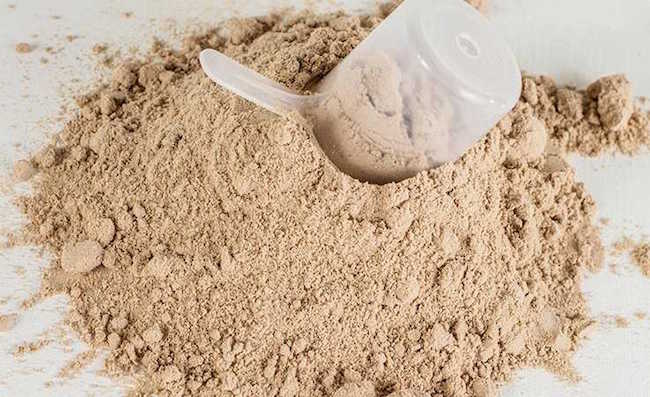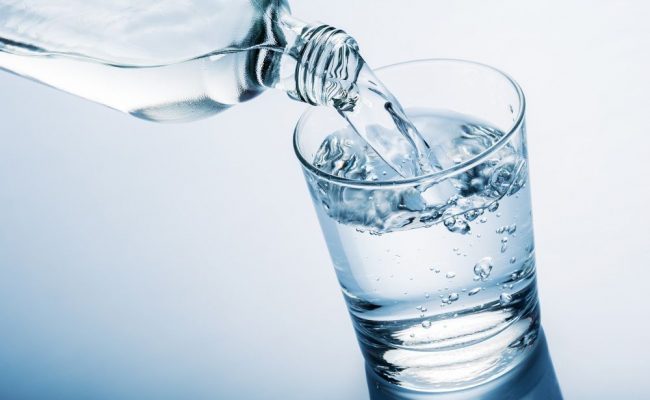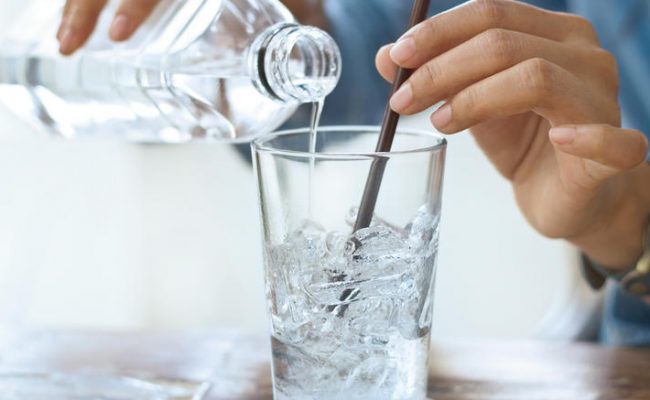
Many people take protein powders in an effort to gain muscle. However, there is some controversy as to whether this is really effective. There is evidence suggesting that consuming high level s of protein may in fact have negative side effects for your health.
Does protein powder help to build muscle?
It is certainly true that protein is required to build muscle, as well as for numerous other important functions in the body.
However, there is a limit to how much muscle growth can actually occur, no matter how much protein you consume.
The first thing to remember is that eating protein alone will not increase muscle.
To build muscle you have to use it.
The slight damage done to the muscle during weight lifting and other resistance activities and then healing is how the muscle grows larger, so if you are simply consuming protein powders in order to gain muscle but still sitting at home on the sofa, this isn’t going to happen.
Muscle growth requires adequate supplies of protein, however, for the majority of people this is easily obtained from food sources and there is no need to supplement with powders.
The average American has a diet higher in protein than is in fact recommended anyway, so adding extra with powder is an expensive process that is unlikely to have any real effects.
To encourage maximum protein synthesis and muscle growth, the diet should also be sufficient in complex carbohydrates which can be burnt to fuel muscles leaving the protein free for synthesis of new tissue.
(Also read: Should you eat protein and carbs together)
What are the side effects?
Consuming high levels of protein in the form of protein powders or even from food alone can be detrimental for our health.
Fat gain
Adding extra protein to the diet in the form of protein powder adds extra calories.
As excess protein cannot be stored in its original form in the body, if you are not burning these calories by doing a sufficient amount of physical activity, or doing enough weight bearing activities to build more muscle, these extra calories are likely to be converted to fat. (See also: How to burn more fat while exercising)
An increase in protein intake as well as calories without an increase in physical activity levels is likely to result in an equal gain in both fat and muscle, which may not be exactly what you are looking for when you supplement protein powder.
Bone loss
High levels of protein intake generates a large amount of acid in the body due to the excess sulphates and phosphates that are introduced.
The kidneys then try to restore the balance of acid by excreting more acid, at the same time the skeleton releases calcium which is also lost in the urine as a buffer.
This results in the loss of calcium from bones which can increase the risk of osteoporosis if it occurs over a longer time frame, particularly in high risk groups such as women.
There is a possibility however, that a diet which is high in alkaline fruit and vegetables in addition to protein may help to counteract this effect.
Kidney damage
High protein diets can put increased strain on the kidneys due to the need to excess waste products called ketones that are generated with such a diet and the need to excrete these products.
For people with reduced kidney function this stress can worsen the condition and may even contribute to reduced function in people with healthy kidneys if followed for a long period of time.
Dehydration
A high protein intake, particularly if you are not eating enough carbohydrates, can push the body into ketosis, a state in which there is a build-up of toxic ketones in the body.
Your kidneys then go into overdrive trying to eliminate these substances and in the process a lot of water is lost as urine.
This increases the risk of dehydration, particularly if you are also losing a lot of fluid through sweat during exercise.
This dehydration not only puts stress on the kidneys, but can also affect the function of the heart in extreme cases.
Other undesirable side effects could include dizziness, lethargy and bad breath.
How much protein do we need?
Protein should not make up more than 30% of your daily calories, but in fact much less than this, around 15%, will provide most people with enough protein.
The recommended daily allowance for protein is 0.36 grams per pound of body weight.
So if you weigh 190 pounds, you will need about 68 grams of protein per day.
If you consider that an average steak contains about 42 grams of protein, this is not difficult to achieve.
References used in this article











Reema says
I got protinex for two weeks. I felt healthy and I put some weight too. But I found my period was late for 4 days. Suddently I stopped taking it. I had serious doubt that taking suppliment caused it.( It usualy happen to me when I take some extra vitamin or if I am on a medication. )
For my suprise it worked. I got my period the very next day.I wonder if there any explaination for this situation?
Bigg Rich says
I started taking pure whey protein shake two weeks ago and all has been well. But since two days ago I have noticed that when I relieve myself in the toilet, there’s some oily liquid that’s also excreted alongside the fieces. Sometimes this liquid discharges when I fart. I don’t feel any pain or discomfort whatsoever though, I just find it strange and would like to know if I should worry?
Spaz says
it’s also necessary to consider other medical problems like epilepsy. I still don’t fully know the extent of the Components that can make seizures worse but they are there. It happened to me, and I’ve read other situations. Protein itself can be beneficial, but powders not so much.
Di says
I love protein shake after long runs of 6 miles or longer. All plant protein powder is what I prefer with fruits. I noticed that if I do drink the night before a run and another shake after the days run, I feel not as tired.
Am says
When started taking Whey Isolate protein (NewZealand) I started producing excess mucus.. really a lot ,, I could not even talk untill I could clear my throat. I got back to normal when I stopped taking it. I took for 2 weeks. I wish I take it for longer period. I tested myself again after some break, I again produced muscus… tho the shake says it is lactose free even then .. 🙁 I m not even lactose intollerace.
Daniel Balint says
I work out at least four days a week trying to build strength in my core muscles and in other areas. I take Body Fortress Advanced Whey protein(10-12oz.) after each workout. Am I getting too much protein? I follow a normal well balanced diet.
Thanks
ambar says
Hi, I start workout from last week and I am tacking Whey protein powder 60 gm/day. Also I am taking fat burner, to loose some fats too. So it this good to have it together both protein and fat burner and is there any side effect if I am taking both together. and also following all diet which provided by my trainer.
So I am little bit worried about protein powder ? Shall I continue taking it or I skip it and only try to get it naturally like by some foods and veges.
How many day will take fat burner can you suggest it?
Jan Hougham says
I have experienced a loss in appetite and an odd taste in my mouth and food does not taste good. Wondering if this could be related to the protein drink I’ve been drinking every morning for about 4 months now?
Ahlam says
I started pure protein two weeks ago. I felt some pain in my sides although I put some weight too. But I found my period was late for a 14 days. did it affect my hormones?
Jane says
I’ve noticed I’m getting dizzy within an hour of drinking a whey powder with almond milk, greens, and berries. Sure enough, this site affirmed that dizziness is a side effect.